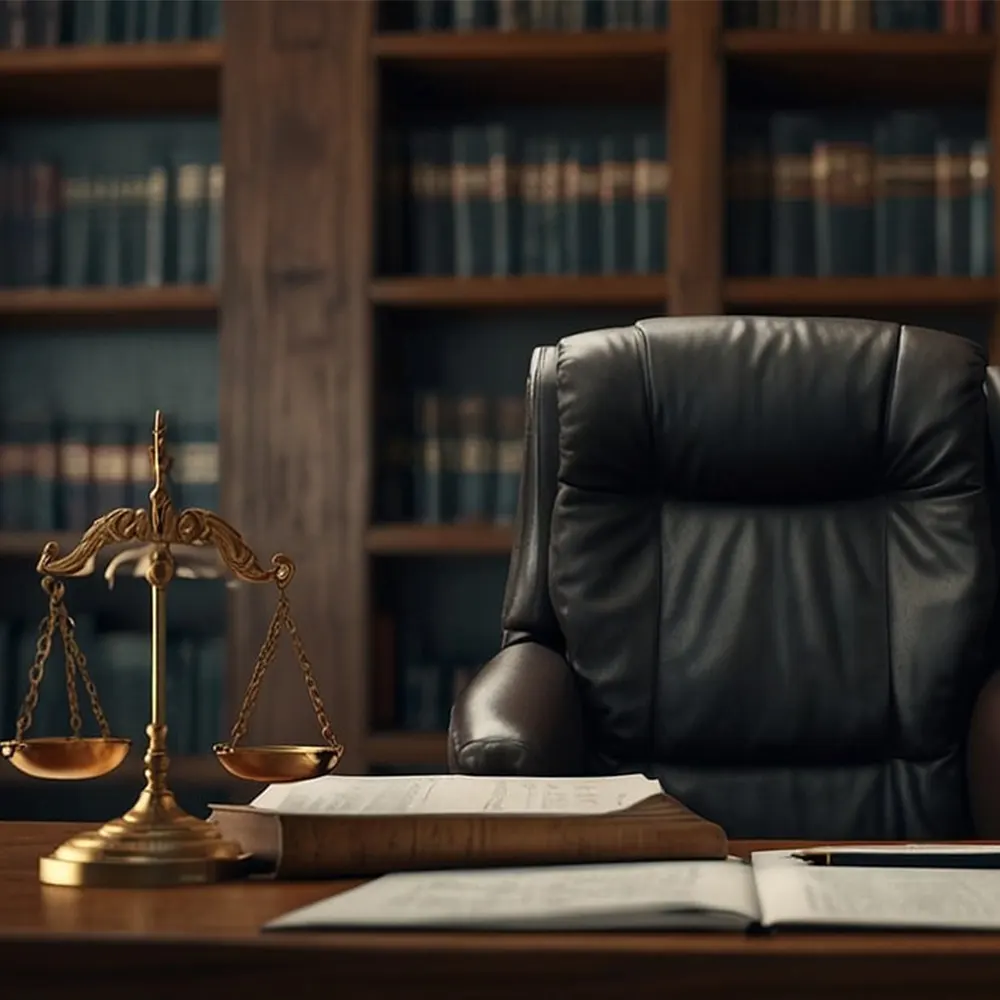Sydney
Bail Lawyers
Sydney Bail Application Lawyers
Sydney Bail Lawyers | Bail Application Lawyers
- Local Court bail Applications
- Supreme Court bail Applications
- Appeals bail
- Parramatta Bail Court Applications
- Weekend Bail Applications
Get a Call back



Criminal & Traffic Law

BAIL
NSW BAIL LAWS
In NSW, bail is governed by Bail Act 2013 and Bail Regulations 2021. Bail is an agreement which allows the accused to be at liberty while awaiting the finalisation of their criminal matter before the Courts.


On arrest and charging of the accused, the NSW Police can make a bail decision by:
- Releasing the accused without bail, or
- Releasing the accused on bail with or without conditions, or
- Refusing bail.
Only a Police officer of Sergeant rank or higher can make a bail decision.
If the NSW Police refuse the accused bail, then NSW Police must present the accused before a Court or authorised Justice as soon as practicable to be dealt with under the law.
Contact Sydney Bail Lawyers
Sydney bail lawyers can be contacted 24/7 on (02) 8610 3764 for all bail applications including weekend bail applications.

BAIL APPLICATIONS NSW
After the NSW Police refuse an accused bail, the accused is usually presented to a Local Court. At the Local Court, the accused can make a formal bail application/release application.
SHOW CAUSES BAIL | SHOW CAUSE OFFENCES
In determining any bail application, the Courts first consider whether the accused is charged with a show cause offence. Section 16B Bail Act 2013 lists the types of show cause offences.
If the accused is charged with a show cause offence, the accused must show cause why their detention is not justified. The following factors alone or in combination can amount to cause being shown:
- The accused’s prior good character or lack of criminal history,
- The accused’s prior compliance with bail conditions,
- The accused’s need to seek medical treatment or care for their family,
- Delay in the finalising the criminal matter before the Courts,
- The accused’s need to attend employment, rehabilitation or counselling,
- The weakness of the prosecution case,
- The bail conditions proposed by the accused.
UNACCEPTABLE RISKS / BAIL CONCERNS
If the Court finds that the accused has shown cause why their detention is not justified, the Court then considers whether there are any unacceptable risks of any bail concerns materialising.
There are four bail concerns which the Courts assess in determining whether there is an unacceptable risk of any of them materialising. The bail concerns are if the accused is released from custody, they will:
- Fail to appear at any Court proceedings for the offence,
- Commit a serious offence,
- Endanger the safety of individuals, victim or the community, or
- Interfere with witnesses or evidence.
Section 18 Bail Act 2013 provides the list of matters to be considered as part of assessment of bail concerns.
Contact our bail solicitors to discuss.
MATTERS TO BE CONSIDERED AS PART OF ASSESSMENT
1) A bail authority is to consider the following matters, and only the following matters, in an assessment of bail concerns under this Division—
a. The accused person’s background, including criminal history, circumstances and community ties,
b. The nature and seriousness of the offence,
c. The strength of the prosecution case,
d. Whether the accused person has a history of violence,
d1. behaviour engaged in by the accused that may, under the Crimes (Domestic and Personal Violence) Act 2007, section 6A(2), constitute domestic abuse,
Examples of behaviour—
behaviour that is physically abusive or violent, including strangulation and sexual assault, animal abuse and stalking
e. whether the accused person has previously committed a serious offence while on bail (whether granted under this Act or a law of another jurisdiction),
f. Whether the accused person has a history of compliance or non-compliance with any of the following—
- Bail acknowledgments,
- Bail conditions,
- Apprehended violence orders,
- Parole orders,
- Home detention orders, good behaviour bonds or community service orders,
- Intensive correction orders,
- Community correction orders,
- Conditional release orders,
- Non-association and place restriction orders,
- Supervision orders,
- If the bail authority is making the assessment of bail concerns because the accused person has failed or was about to fail to comply with a bail acknowledgment or a bail condition, any warnings issued to the accused person by police officers or bail authorities regarding non-compliance with bail acknowledgments or bail conditions,
g. Whether the accused person has any criminal associations,
h. The length of time the accused person is likely to spend in custody if bail is refused,
i. The likelihood of a custodial sentence being imposed if the accused person is convicted of the offence,
i. If the accused person has been convicted of the offence, but not yet sentenced, the likelihood of a custodial sentence being imposed,
j. If the accused person has been convicted of the offence and proceedings on an appeal against conviction or sentence are pending before a court, whether the appeal has a reasonably arguable prospect of success,
k. Any special vulnerability or needs the accused person has including because of youth, being an Aboriginal or Torres Strait Islander, or having a cognitive or mental health impairment,
l. The need for the accused person to be free to prepare for his or her appearance in court or to obtain legal advice,
m. The need for the accused person to be free for any other lawful reason,
n. The conduct of the accused person towards any victim of the offence, or any family member of a victim, after the offence,
o. In the case of a serious offence or a domestic violence offence against an intimate partner, the views of any victim of the offence or any family member of a victim (if available to the bail authority), to the extent relevant to a concern that the accused person could, if released from custody, endanger the safety of victims, individuals or the community,
p. The bail conditions that could reasonably be imposed to address any bail concerns in accordance with section 20A,
q. Whether the accused person has any associations with a terrorist organisation (within the meaning of Division 102 of Part 5.3 of the Commonwealth Criminal Code),
r. Whether the accused person has made statements or carried out activities advocating support for terrorist acts or violent extremism,
s. Whether the accused person has any associations or affiliation with any persons or groups advocating support for terrorist acts or violent extremism.
2) The following matters (to the extent relevant) are to be considered in deciding whether an offence is a serious offence under this Division (or the seriousness of an offence), but do not limit the matters that can be considered—
a. whether the offence is of a sexual or violent nature or involves the possession or use of an offensive weapon or instrument within the meaning of the Crimes Act 1900,
b. the likely effect of the offence on any victim and on the community generally,
c. the number of offences likely to be committed or for which the person has been granted bail or released on parole.
If the Court finds that there are bail concerns which do not pose an unacceptable risk of materialising, then the Court will grant bail with conditions which seek to ameliorate bail concerns.
BAIL CONDITIONS
The Court can grant bail with or without conditions. Bail conditions can:
- Impose conduct requirements
- Can require security to be provided
- Can require character acknowledgments
- Can impose accommodation requirements
- Can impose accompaniment requirements
- Impose electronic monitoring for certain offences
- Include enforcement conditions.
Parramatta bail solicitors advise that only bail conditions that can be complied with should be proffered in bail applications.


BREACH OF BAIL
If the accused has been granted bail, and a Police Officer believes, on reasonable grounds, that the accused has failed to comply with or is about to fail to comply with a bail acknowledgement or bail condition, the Police officer may:
- Issue a warning to the accused,
- Issue a notice to the accused to appear before a Court or authorised Justice,
- Issue a Court attendance notice to the accused if the Police Officer believes that the failure to comply is an offence,
- Arrest the accused, without warrant, and take the accused as soon as practicable before a Court or authorised justice,
- Apply to an authorised Justice for a warrant to arrest the accused.
If the accused is brought before a Court, the Court may release the person on the original bail, vary the bail, or revoke or refuse bail.
Call our bail lawyers to discuss.
APPEALS BAIL
If a person has been convicted and sentenced to a custodial sentence having been previously on bail, they can make a bail application while their appeal progresses through the higher Court.
A bail application pending appeal to the District Court employs the same principles as a Local Court bail application as highlighted above with the most important consideration being section 18(1)(j) Bail Act 2013 which states:
- A bail authority is to consider the following matters, and only the following matters, in an assessment of bail concerns under this Division-
- j. If the accused person has been convicted of the offence and proceedings on an appeal against conviction or sentence are pending before a court, whether the appeal has a reasonably arguable prospect of success.
PARRAMATTA BAIL COURT
If an accused is arrested and refused Police bail on the weekend or holidays, the NSW Police present the accused to the Parramatta Bail Court which usually sits at the Parramatta Children’s Court located at 2 George Street, Parramatta, NSW 2150.
Sydney bail lawyers can be contacted 24/7 on (02) 8610 3764 for all bail applications including weekend bail applications.
REVIEWS
Jerry Casipit
Can not recommend Ahmed Shakeri enough. He puts in 100% effort and makes sure you get the best outcome possible. Thank you again for your outstanding service!
Joshua Davis
FREQUENTLY ASKED QUESTIONS ABOUT BAIL
Bail decision can be made by Police Officers of or above the rank of Sergeant, the Courts or authorised Justices.
If the NSW Police refuse an accused bail, then NSW Police must present the accused before a Court or authorised Justice as soon as practicable to be dealt with under the law.
An accused can make a bail/release application orally if they are already before the Court or if not before the Court in writing in the approved form.
Section 16B Bail Act 2013 lists all the show cause offences. The most common scenario where the show cause provisions apply is when the accused is already on conditional liberty and charged with a serious indictable offence which is any offence that carries a penalty of a maximum of 5 years or more.
Section 18 Bail Act 2013 lists the matters which the Courts consider as part of assessment of unacceptable risks. If the Court finds any unacceptable risks, bail will be refused.
Bail conditions can:
- impose conduct requirements
- can require security to be provided
- can require character acknowledgments
- can impose accommodation requirements
- can impose accompaniment requirements
- impose electronic monitoring for certain offences
- include enforcement conditions.
A breach of bail can lead to NSW Police:
- issuing a warning to the accused,
- issuing a notice to the accused to appear before a Court or authorised Justice,
- issuing a Court attendance notice to the accused if the Police Officer believes that the failure to comply is an offence,
- arresting the accused, without warrant, and taking the accused as soon as practicable before a Court or authorised justice,
- applying to an authorised Justice for a warrant to arrest the accused.
Yes. An accused on bail can make a bail variation application to the Court and the Court will consider whether conditions of bail should be varied.
A person convicted and sentenced to a custodial sentence can make a bail application while their appeal is progressing before the higher Court.
Bail lasts until it is either revoked or the substantive proceedings for which bail was granted are finalised.
